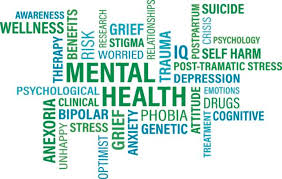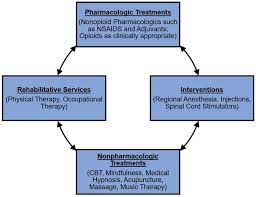The Importance of Being a Mental Health Advocate
Mental health advocacy plays a crucial role in raising awareness, breaking stigma, and promoting support for individuals facing mental health challenges. A mental health advocate is someone who actively promotes mental health awareness, education, and resources to create a more understanding and supportive community.
One of the key responsibilities of a mental health advocate is to challenge the misconceptions and stereotypes surrounding mental illness. By sharing personal stories, advocating for policy changes, and participating in public campaigns, advocates help normalize conversations about mental health and encourage individuals to seek help without fear of judgment.
Furthermore, mental health advocates work tirelessly to ensure that those struggling with mental health issues have access to proper care and support. They may collaborate with healthcare providers, community organizations, and policymakers to improve mental health services, increase funding for research, and implement programs that address the needs of diverse populations.
Being a mental health advocate requires empathy, resilience, and dedication. Advocates often face challenges such as resistance to change, lack of resources, and societal stigma. However, their unwavering commitment to promoting mental wellness and supporting those in need drives them to continue their important work.
Whether through public speaking engagements, social media campaigns, or grassroots initiatives, mental health advocates play a vital role in creating a more compassionate and inclusive society. Their efforts not only benefit individuals struggling with mental health issues but also contribute to building a healthier community where everyone feels valued and supported.
If you are passionate about mental health advocacy or know someone who is making a difference in this field, take the time to appreciate their dedication and consider how you can support their cause. Together, we can break down barriers, foster understanding, and promote positive change in the realm of mental health.
Understanding Mental Health Advocacy: Key Questions and Answers
- What is a mental health advocate?
- Why is mental health advocacy important?
- What does a mental health advocate do?
- How can I become a mental health advocate?
- What are the qualities of a good mental health advocate?
- How can mental health advocates help individuals in need?
- What challenges do mental health advocates face?
- How can I support mental health advocacy efforts?
- Are there organizations that focus on mental health advocacy?
What is a mental health advocate?
A mental health advocate is an individual dedicated to raising awareness, promoting understanding, and supporting those facing mental health challenges. They actively work to break down stigma surrounding mental illness by advocating for better access to resources, treatment options, and support systems. Mental health advocates use their voices to educate the community, share personal experiences, and push for policy changes that prioritize mental wellness. Their commitment to fostering a more compassionate and inclusive society plays a crucial role in empowering individuals to seek help, find acceptance, and navigate their mental health journey with dignity and support.
Why is mental health advocacy important?
Mental health advocacy is crucial because it helps raise awareness, reduce stigma, and ensure that individuals facing mental health challenges receive the support and resources they need. By advocating for improved access to mental health services, promoting education about mental wellness, and challenging societal misconceptions, mental health advocates play a vital role in creating a more compassionate and understanding community. Their efforts not only empower individuals to seek help without fear of judgment but also contribute to building a society that values mental well-being as an integral part of overall health.
What does a mental health advocate do?
A mental health advocate plays a crucial role in raising awareness, challenging stigma, and promoting support for individuals facing mental health challenges. They actively engage in activities such as sharing personal stories, advocating for policy changes, participating in public campaigns, and collaborating with healthcare providers and policymakers to ensure access to proper care and support for those struggling with mental health issues. By normalizing conversations about mental health, advocating for resources and services, and working towards creating a more understanding and inclusive community, mental health advocates make a significant impact in improving mental wellness for individuals and society as a whole.
How can I become a mental health advocate?
To become a mental health advocate, you can start by educating yourself about mental health issues, understanding the stigma surrounding them, and familiarizing yourself with available resources and support systems. Engaging in conversations about mental health, both online and in your community, can help raise awareness and reduce stigma. Consider volunteering with mental health organizations, attending workshops or training sessions, and connecting with other advocates to learn from their experiences. Utilize social media platforms to share information, personal stories, and resources related to mental health. By taking these steps and actively advocating for mental health awareness and support, you can make a positive impact in the lives of individuals facing mental health challenges.
What are the qualities of a good mental health advocate?
A good mental health advocate possesses a unique blend of empathy, resilience, and dedication. They demonstrate genuine compassion for individuals facing mental health challenges, actively listening to their stories and providing support without judgment. Advocates exhibit resilience in the face of obstacles, advocating tirelessly for policy changes, increased resources, and improved access to mental health services. Their dedication to raising awareness, breaking stigma, and promoting mental wellness drives them to engage in meaningful conversations, educate others, and empower individuals to seek help when needed. Ultimately, a good mental health advocate embodies a commitment to creating a more understanding and supportive community for those struggling with mental health issues.
How can mental health advocates help individuals in need?
Mental health advocates can help individuals in need by providing crucial support, resources, and guidance to navigate the challenges of mental health issues. They play a pivotal role in raising awareness, reducing stigma, and promoting access to mental health services. Advocates offer a listening ear, empathy, and understanding to those struggling with mental health concerns, empowering them to seek help and prioritize their well-being. Through education, advocacy campaigns, and community outreach, mental health advocates work tirelessly to ensure that individuals in need receive the care and support they deserve, ultimately fostering a more compassionate and inclusive environment for those facing mental health challenges.
What challenges do mental health advocates face?
Mental health advocates face a myriad of challenges in their important work to raise awareness and support individuals struggling with mental health issues. Some of the key challenges include overcoming stigma and misconceptions surrounding mental illness, navigating limited resources and funding for mental health services, addressing systemic barriers to access care, and combating societal attitudes that may hinder progress in promoting mental wellness. Additionally, advocates often encounter resistance to change and the need for continuous education and advocacy efforts to effect meaningful improvements in mental health policies and support systems. Despite these obstacles, mental health advocates remain resilient in their commitment to advocating for better mental health outcomes and creating a more supportive environment for those in need.
How can I support mental health advocacy efforts?
Supporting mental health advocacy efforts is crucial in creating a more understanding and supportive environment for individuals facing mental health challenges. One impactful way to support mental health advocacy is by educating yourself about mental health issues, breaking stigma through open conversations, and promoting awareness in your community. Additionally, you can support mental health organizations through donations, volunteering your time or skills, and advocating for policies that prioritize mental wellness. By being an active ally and amplifying the voices of mental health advocates, you contribute to building a more compassionate and inclusive society where everyone’s well-being is valued and supported.
Are there organizations that focus on mental health advocacy?
Yes, there are several organizations that focus specifically on mental health advocacy. These organizations work tirelessly to raise awareness, promote education, and advocate for policies that support individuals facing mental health challenges. Some well-known mental health advocacy organizations include the National Alliance on Mental Illness (NAMI), Mental Health America (MHA), Bring Change to Mind, and Active Minds. These organizations play a crucial role in destigmatizing mental illness, providing resources and support for those in need, and influencing positive change at both the local and national levels. By supporting these organizations or getting involved in their advocacy efforts, individuals can contribute to creating a more supportive and understanding environment for those affected by mental health issues.



